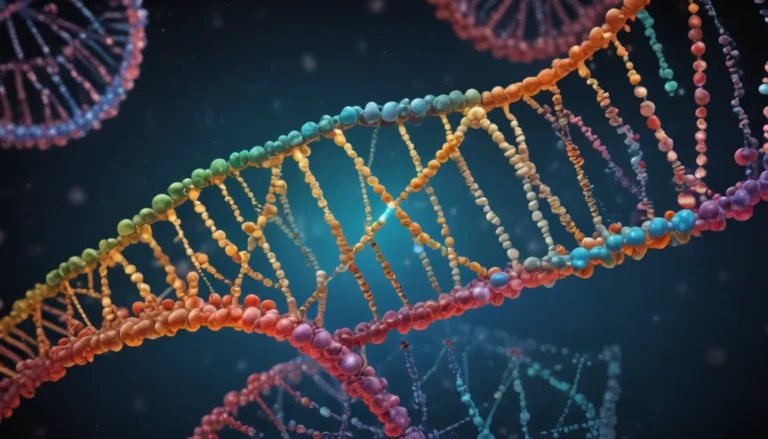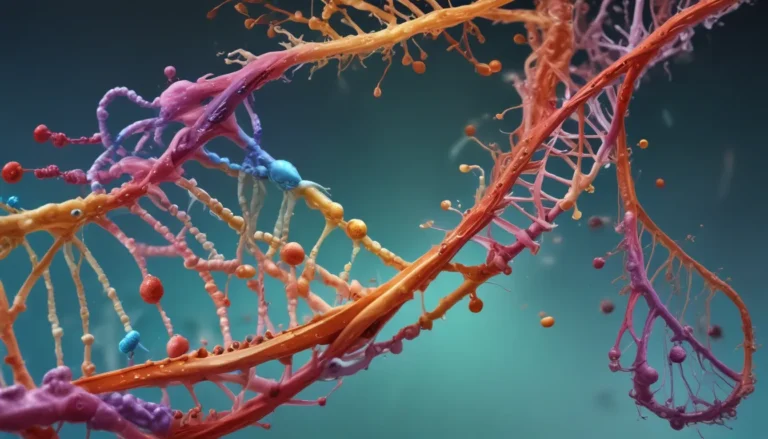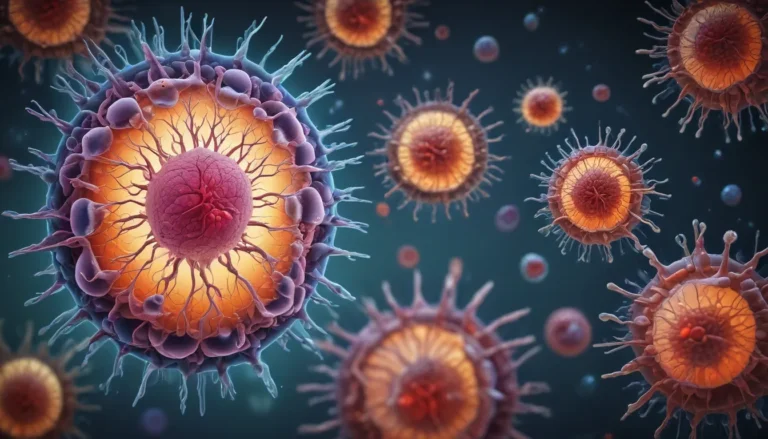A Note About Images: The images used in our articles are for illustration purposes only and may not exactly match the content. They are meant to engage readers, but the text should be relied upon for accurate information.
Signal transduction is a captivating process essential for cell communication and response to external cues. Through a complex network of molecular interactions, cells interpret signals from their environment, leading to specific cellular responses. Let’s embark on a journey to explore the extraordinary world of signal transduction and unravel 20 fascinating facts that will deepen your understanding of this biological phenomenon.
The Significance of Signal Transduction in Cells
Signal transduction is a vital process that enables cells to receive and interpret signals, allowing them to respond effectively to various stimuli. This intricate mechanism involves a complex network of proteins, receptors, and second messengers that relay signals from the cell surface to the nucleus, triggering specific cellular responses.
The Role of Hormones in Signaling
Hormones act as essential signaling molecules that regulate various physiological processes through signal transduction pathways. By initiating and coordinating cellular activities, hormones play a crucial role in maintaining cellular homeostasis.
Key Players in Signal Transduction
- G-protein coupled receptors (GPCRs) are pivotal in signal transduction, activating intracellular signaling pathways upon binding to specific ligands.
- Protein kinases, enzymes that modify other proteins through phosphorylation, are vital components of signal transduction pathways.
Implications of Abnormal Signal Transduction
Disruptions in signal transduction pathways can lead to the development of diseases such as cancer, diabetes, and neurological disorders. Environmental factors like toxins and pollutants can also interfere with signal transduction, potentially contributing to disease progression.
The Influence of Signal Transduction on Cellular Processes
- Signal transduction pathways regulate cell growth, development, and differentiation, ensuring proper tissue formation and organogenesis.
- By modulating specific signaling events, drugs and therapeutic interventions can influence signal transduction processes, offering potential targets for treating diseases.
Unveiling the Intricacies of Signal Transduction
- Signal transduction can result in changes in cellular metabolism, controlling energy production and nutrient uptake.
- Post-translational modifications, such as phosphorylation and acetylation, can alter the activity of signaling proteins, modulating signal transduction pathways.
Exploring the Diversity of Signal Transduction
- Signal transduction can occur in both single-celled organisms and complex multicellular organisms, showcasing its universal presence in living organisms.
- Feedback loops, whether positive or negative, are common in signal transduction, maintaining cellular homeostasis and regulating signaling pathways.
The Evolving Landscape of Signal Transduction Research
Scientists continue to unravel new insights into signal transduction, deepening our understanding of this intricate process. As research progresses, new discoveries in signal transduction pave the way for advancements in biology, medicine, and drug development.
FAQs About Signal Transduction
-
What is signal transduction?
Signal transduction is the process through which cells receive and respond to external signals, enabling them to interpret cues from their environment and produce specific cellular responses. -
How does signal transduction occur?
Signal transduction involves a series of molecular events that begin with the binding of a signaling molecule to a specific receptor on the cell surface. This binding event triggers intracellular pathways that modulate cellular activities. -
What are second messengers?
Second messengers are small molecules that amplify and transmit signals from the cell surface to the interior, acting as intermediaries between the receptor and the cellular response. -
Why is understanding signal transduction important?
Understanding signal transduction provides insights into cellular communication and response mechanisms. It has implications in medicine and drug development, offering potential targets for therapeutic interventions in various diseases.
Conclusion
In conclusion, signal transduction is a captivating process with profound implications in biology, medicine, and beyond. By delving into the intricate world of signal transduction pathways, we uncover the remarkable complexity and versatility of cellular communication. As we continue to explore and understand the mechanisms of signal transduction, we pave the way for groundbreaking discoveries and innovative therapies that can improve human health and well-being.
Our commitment to delivering informative and engaging content ensures that each fact we share is credible and enlightening. Trust in our dedication to quality and authenticity as you embark on a journey of discovery through the wonders of signal transduction. Explore the realm of cellular communication and let these fascinating facts ignite your scientific curiosity and inspire further exploration into the marvels of biology.






